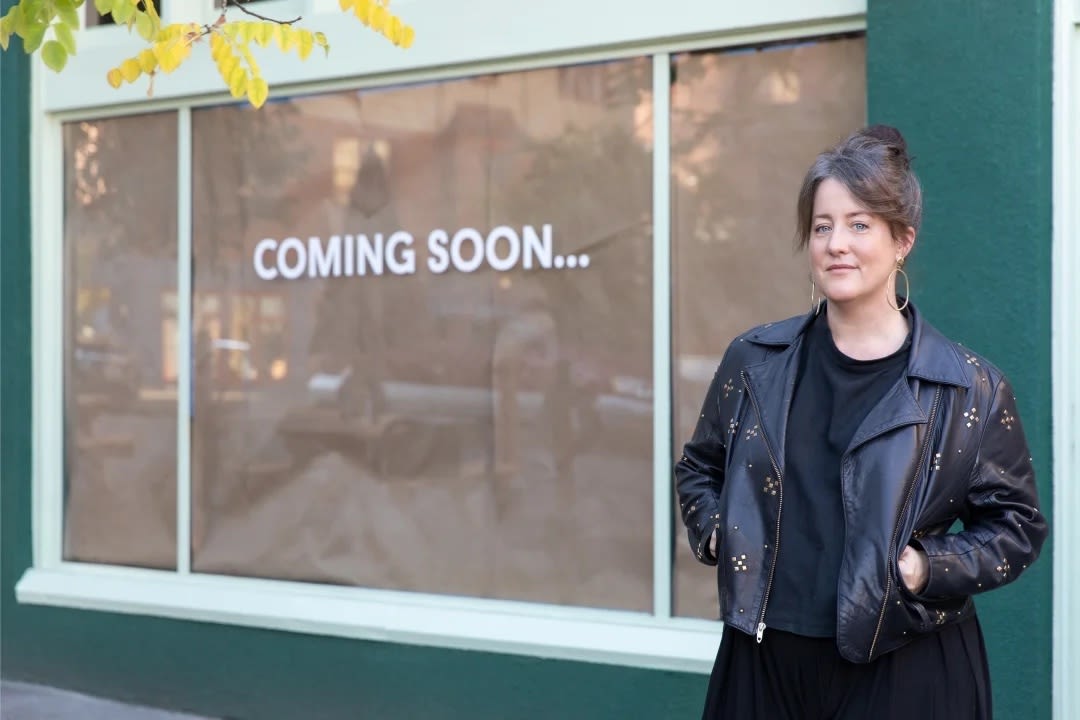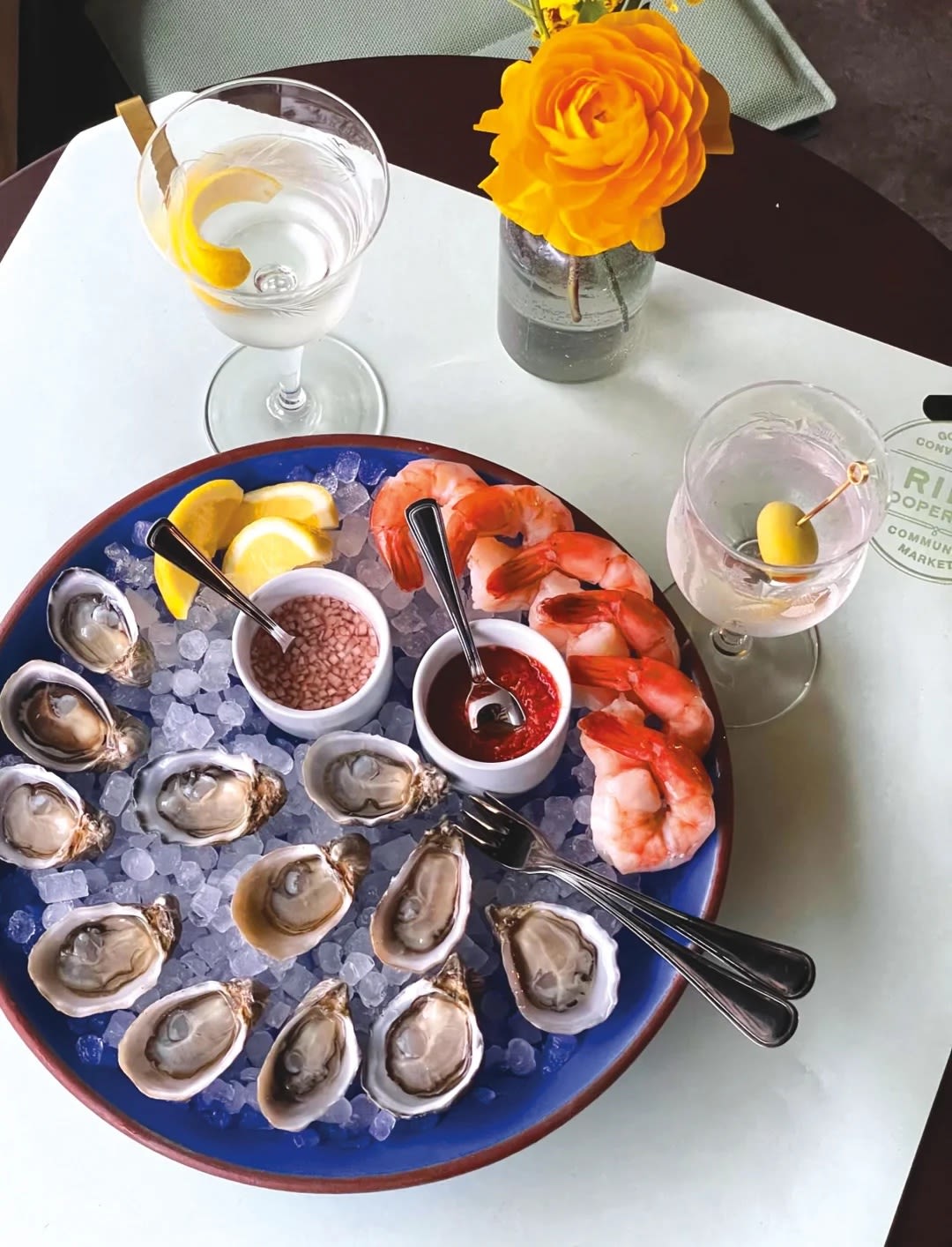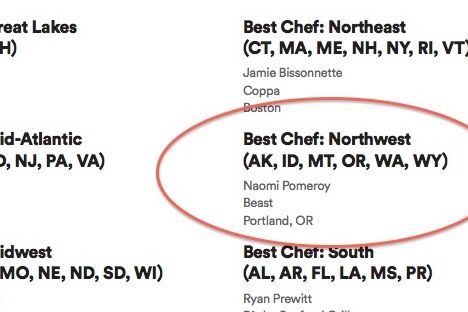Ripe Cooperative, the Year-Old Euro-Centric Sidewalk Café in the Former Beast Space, Is Closing

Naomi Pomeroy stands in front of the space that was slated to become Ripe Cooperative in 2020.
Image: Courtesy Zach Lewis
Ripe Cooperative will close after this weekend’s service on October 15, marking 15 years to the date since chef and owner Naomi Pomeroy opened its predecessor, Beast, in the same space.
In a recent conversation with Portland Monthly on Ripe’s patio, Pomeroy noted that Beast was long considered one of Portland’s most expensive restaurants. Nevertheless, for the entirety of its 13-year run, the James Beard award-winning tasting menu spot was a hard table to get. When she set out to resurrect the Covid-shuttered restaurant as Ripe Cooperative—first with meal kits, then as a marketplace, and eventually an all-day café—Pomeroy wanted to use her reputation to illustrate what a soup-to-nuts local operation costs.
The space would be casual, like the dreamy sidewalk cafés of Europe. The food would be deftly executed, crafted from the best ingredients locally available. One of Pomeroy’s goals was to shift the focus to the next generation—her mentees—saying she’d had her time in the spotlight. (It’s in that sense that Ripe was a cooperative, though it was never employee-owned.)
I suspect that the result was difficult for many Portlanders. Prices were high and confronting big checks may have turned off much of the would-be clientele. Ripe was where the rubber met the road, a case study of what passing the cost on to the customer looks like.

Image: Courtesy Naomi Pomeroy
To me, the contradiction was that, as dreamy as Ripe is, it’s not a “fancy” restaurant. There are caviar and oysters on the menu, and scallop crudos, too. But it’s not Beast 2.0. It's not a tasting menu. No one is folding your napkin when you go to the bathroom; staff are attentive, but not doting. Ripe wanted to talk about the food. The restaurant's ethos was: “Here’s a beautiful plate of pasta. We made it from scratch with high-quality and local ingredients. We paid our staff well to do it. And, yes, your cacio e pepe costs $28. Yes, your pork chop is $40. Yes, your order of focaccia is $9.”
Though restaurants could always use more support, it’s not that nobody was going to Ripe. “Ripe is simply not cut out to make the necessary compromises and still be what we want it to be,” Pomeroy wrote in a public letter on Ripe’s website Wednesday morning. To unpack that: when restaurateurs refuse to eat the cost of our dysfunctional food economy, an independent restaurant becomes next-to-impossible.
“When places are able to survive that are truly doing it right, it’s often at some other cost you might not see,” the letter continues. “Like lots of investors and debt, or an owner quietly working her 80-hour weeks.”
Restaurants are living, breathing things. As much as we count on them to have our favorite sandwich or bowl of pasta whenever we catch a craving, there is nothing constant in food service. Ripe was a stab at transparency. It’s important to note that it was simply one very influential chef’s stab, but it is illuminating: what of unknown and up-and-coming chefs and restaurateurs trying to do the same thing, who don’t yet have the reputation to charge those prices?
After Ripe closes this weekend, Pomeroy will still have a heavy presence off the corner of NE 30th and Killingsworth in Expatriate, the bar she operates with her husband Kyle Linden Webster. And she’s made many hints to a future home for Ripe’s frozen custard—a new darling in the world of Portland ice cream. But for now, cheers to 15 years of Beast and Ripe. We’ll be loading up our freezers with pints of frozen custard and staying tuned for what’s next.




